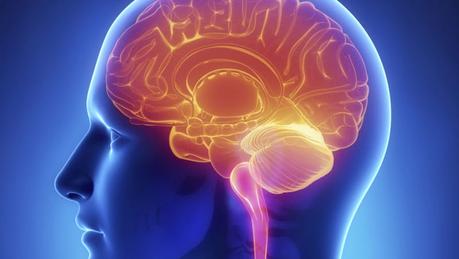
A complicated, yet fascinating, new study suggests ketosis can improve human brain function. Researchers from Mass General Hospital studied young healthy adults with a specialized brain MRI that can determine "brain network stability." The authors state this is a measurement of overall brain health or "brain age."
While I am not familiar with this imaging protocol, I have to take the researchers at their word regarding the validity of the scans. Plus, I have to admit it sounds pretty amazing.
The first part of the study was a retrospective record review showing that brain network stability decreased with age, starting at age 47 and peaking in rate of change around age 60.
The next part, however, was the most interesting. They scanned healthy volunteers first after following their standard diet, then with their standard diet after a 12 hour fast, and finally after 1 week on a ketogenic diet (confirmed by BHB levels averaging 0.6 mmol/L).
Researchers then conducted another experiment, where they scanned healthy volunteers after their standard diet and a 12 hour fast, followed by another scan breaking the fast with a glucose bolus, and lastly, breaking the fast with an exogenous ketone ester drink.
The authors concluded that the ketogenic diet, drinking exogenous ketones and fasting all helped improve brain network stability, whereas a standard diet and a glucose bolus destabilized the brain. In an n=1 experiment, they also showed that the ketone ester improved stability even when given combined with the glucose bolus. But since this was only one patient, it is hard to draw any real conclusions.
While these data as a whole are fascinating, they are also difficult to digest. First, we have to trust that the MRI measurements correlate with real cognitive performance and brain function in the future. Afterall, that is what we are truly concerned about. Next, we have to trust that short term changes seen with dietary manipulation translate to consistent, long-term changes. Third, we need to assume these findings apply to a broader population such as those who are older or overweight or those with insulin resistance.
I think the take home from this study is that it provides more encouraging preliminary data that ketones are "good for the brain" and excess glucose is "bad for the brain." I put those statements in quotes as the definitions of good and bad can take on many forms and need to be clarified in future studies.
Further, this study provides early mechanistic data as to why ketosis may be beneficial for neurologic conditions ranging from Alzheimer's disease, traumatic brain injury, seizures, mood disorders and more. I am excited to see more research in this area as we learn how to use ketosis as a neurologic therapeutic intervention.
Thanks for reading,
Bret Scher MD FACC
Start your FREE 30-day trial!
Get delicious recipes, amazing meal plans, video courses, health guides, and weight loss advice from doctors, dietitians, and other experts.
Join now

